日本人はよく「excuse me」と「sorry」を混同しますが、実は、ネイティブも「excuse me」と「sorry」をちゃんと使い分けていません。ですので、日本人が混同するのも当然なしょう。もちろん、基本的な違いはあるのですが、ネイティブはこの違いを必ず守るわけではありません。それを背景として、「excuse me」と「sorry」が一般的に使われている場面の一覧を以下に作ってみました。
(皆さんが英語の発音練習が出来るように、例文を読み上げて、録音しました。録音したファイルは以下にあります。)
Excuse me
くしゃみ、げっぷ、おなら、咳などをした時
Excuse me!
会話が聞こえない時
1. Excuse me, I’m having trouble hearing you.
すみません、ちょっと聞こえないのですが。
人ごみを掻き分ける時
すみません
2.Excuse me. May I get through? :
すみません、 前を通ってもよろしいでしょうか。
3. Excuse me, excuse me. I’m trying to get through here.
失敬、失敬、通らせて。
人の注意を引こうとする時
4. Excuse me, sir! Yes, that’s right you in the red shirt.
すみません! そう、そこの赤いシャツを着ているあなた。
会話の邪魔をする時
5. Excuse me. I just need a quick word with you.
すみません。ちょっと一言、言わせてください
人違いをした時
6. Excuse me. I thought you were someone else.
すみません、間違えました。違う人と 勘違いしました。
相手の発言が信じられない時
Excuse me,
Sorry
悪いことをして謝りたい時
7. I am really sorry for being an asshole yesterday.
昨日私は酷かったよ。本当にすみません。
8. I am so sorry for being late.
遅くなって、本当にすみません。
9. Ow, that really hurt. Watch where you are going!
Sorry!
いてぇ。どこに目つけて歩いてるんだ!
すみません!
相手に同情する時
10. I am so sorry to hear that you lost your job.
君が失業するなんて。お気の毒に 。。。
11. I am so sorry for you and your family.
あなたと家族の事を本当に気の毒に思います。
パーティーで咳をした途端、「excuse me」というネイティブが多いですが、咳をした後、その咳で相手のシャツを汚してしまったら、「sorry for coughing on you」と言います。少し気持ち悪い例ですみません!
自分が怒っていることを強調したい時
12. Sorry, did you just call me a liar?
ねぇ、今俺に嘘つきって言った?
この場合、「excuse me」とも言えます。これはセックス・アンド・ザ・シティの女優もよく使う台詞です。
13. Excuse me? I can’t believe you just said that.
え?!何言ってんの? 信じられない。
上の例を見ると、「sorry」はやはり自分が悪いことをしたのを認めているという意味合いが強いですね。また、自分は残念に思っているというニュアンスもあります。その一方で、「excuse me」は失礼なことをしたけど、自分には責任がないと思っています。
例えば、自分が咳をしたとしても、わざと咳をしたわけではないので、「excuse me」と言います。また、会話が聞こえない時には、自分のせいではなく、相手が小さい声で喋っていたり、耳が自然と遠くなってしまった場合があるので、「excuse me」と言います。こういった意味合いがあると思いますが、やはり僕が先ほど言ったように、ネイティブは「excuse me」と「sorry」をきちんと使い分けていません。責任を感じて、「excuse me」という時もあります。「失礼しました」という意味で「sorry」という時もあります。めちゃくちゃですね!
いくつかの例を挙げてみましょう。
相手の会話が聞こえない時、
14. Excuse me, I can’t hear what you’re saying. と通常言いますが、
15. Sorry, I totally missed that. Can you say it again? という言い方も間違いではありません。
また、会話の途中、くしゃみをして、「sorry」というネイティブも多くいます。
最後に、ロンドンの地下鉄を使ったことがある方は人混みを掻き分けているイギリス人の次のようなフレーズを耳にしたはずです。
16. Sorry! Sorry! Coming through!
通常の英語は
17. Excuse me. I’m trying to get through.
というようなフレーズです。
やはり、ネイティブが「excuse me」と「sorry」をきちんと区別していないからこそ、日本人がこれらのフレーズを混同するのだと思います。僕はこれらの言葉の違いを無視してもいいと言っているわけではありませんが、上の一覧をガイドラインとして使って下さい。

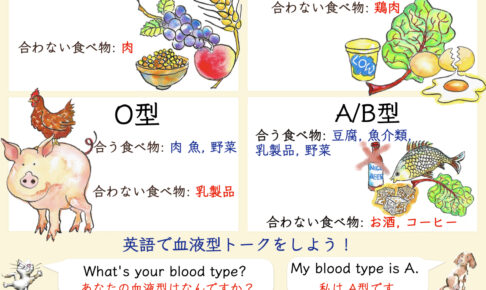
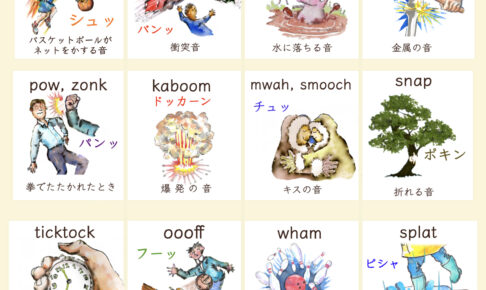
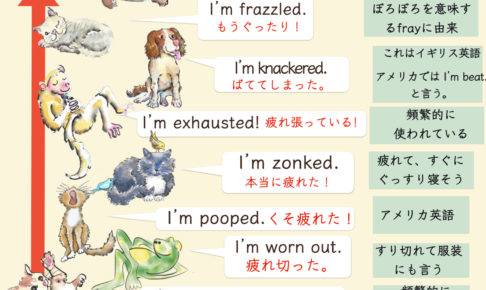





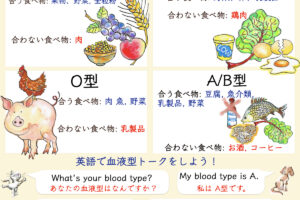
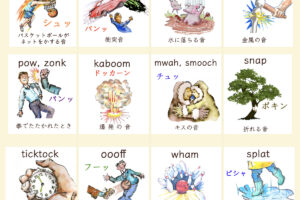
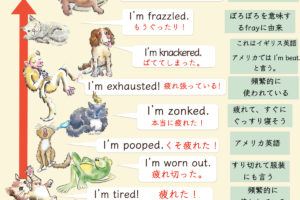

ルーク先生、
7. I am really sorry for being an asshole yesterday. の センテンスにある asshole(ケツの穴)という単語は、親しい友達以外の人達に対して言ってもかまわないのでしょうか???
もし初対面の人から asshole「ケツの穴」なんていわれたら、びっくりすると思うんだけれど・・・。
でもルーク先生のそのユーモアのセンス、大好きです!!
Hi Kai,
Well, kids in high school and college often use asshole to someone they have just met. So I don’t think anyone would be surprised if they used that word. Of course, many Americans from conservative backgrounds or older people would be offended by that word. So it is best if you only use that words with people you know well.
However, if you were an asshole one day and then then next day apologized for being one then that is actually quite a nice thing to do, I think.
I hope that helps!
Luke
英語の発音つきでわかりやすいです^^
日本人はもっと本場の英語を耳で聴くべきだと思います!
ブログ更新がんばってください。
Hi Yuri,
Thanks so much for your encouragement!
すみません。間違えました。
I can’t take my eyes off of you. の of はなぜofなのですか?
難しい質問ですね。でも英語ではよく「off of」と言いますね。たとえば、「Can you take that off of the table?」です。
以下のサイトにちゃんとした説明が書いてあります。
http://public.wsu.edu/~brians/errors/nonerrors.html
あと、never everだと、 絶対に~ない ですが、
ever never だと、never が ever を強調しているのでnever ever とは違う意味ですか?
Hi Luke,
The modal verb ,”May ” on the sentence ,”May I get through?” means Permission.
” May ” is also used like this:
” How may I help you? ”
It means ” Asking ” in a formal way.
Then,What does ” Asking ” mean?
” Question ” or ” Permission “?
The sentence is ” Question ” to ” Ask “.
If ” Ask ” means ” Question “,it is strange that ” Question ” to ” Question “.
Then, the ” may ” means ” Permission “( i.e. Asking ):
A:” How may I help you? “: Permission
B:” Hello.This is ~.May I speak to~? “: Request
However, is it a bit strange that one person asking ” Permission ” and the other person answering ” Request ” ?
Once again,have a look at “May I get through?” .
After all,it is a question: ” Ok? or No? “( If someone would say ” Sure.” )
So,I think it is the same thing: Both are Okey,you may request or you may not request.
Think about it:
The cloak say ” How may I help you? ” to keep a customer’s coat.
The customer would tell him ” Yes,please.” or ” No,thank you.It’s cold today.”
Then,both are allright.
By the way,also ” Can I help you? ” is often used.
It means ” in polite offers of help “.
So, ” How may I help you? ” = ” Can I help you? “.
What is the most polite?
1.How may I help you?
2.How can I help you? ( But,this one has a bit problem.)
3.How can I serve you?
4.May I help you?
5. What Can I do for you?
As for 2.,it seems better ” Can I help you?”
Because,” How can I help you ?” has similar to ” Ah,how can I say this…”
Then,someone think that ” If you can help,just ask.”
Because,it is not ” Question for Permission ” but ” Offers of Help “.
So, ” Can I help you? ” sounds almighty.
英語さっぱり分かりません。